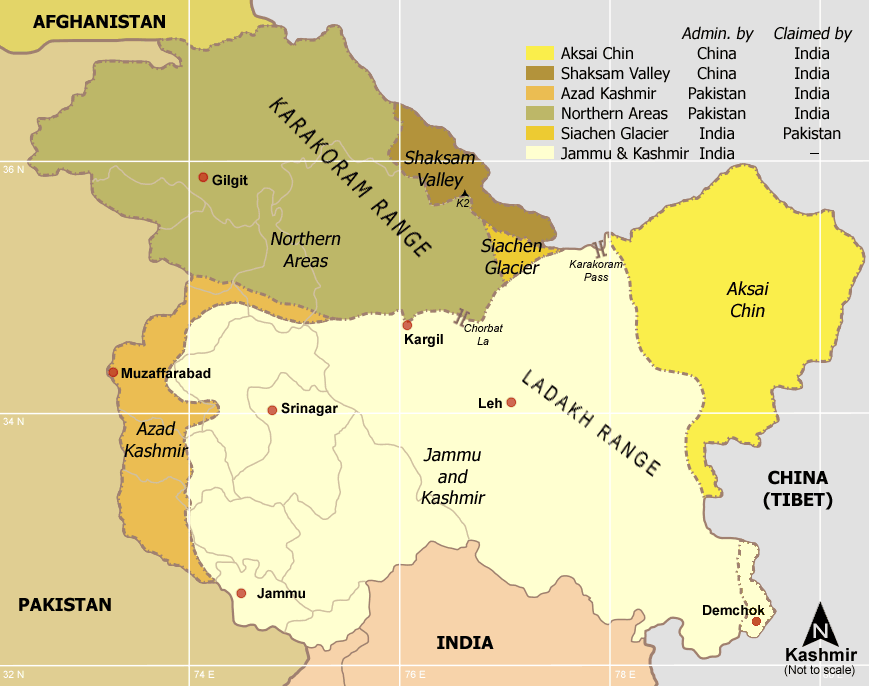On Thursday, September 23 at a Congressional briefing of the House
Select Committee on Energy Independence and Global Warming, about
'Extreme Weather in a Warming World' the Pakistani Ambassador to the US, Husain Haqqani, blamed the extensive floods in Pakistan partly on military activity on the Siachen Glacier on the disputed border between Indian and Pakistan in Kashmir. He said that "Human Activity in the glaciers" is partly to blame for climate changes that brought on the devastating floods in Pakistan this summer. He noted that the Siachen glacier, in particular, is host to a heavy presence of both the Pakistani and Indian militaries, although he noted that Pakistan has
proposed to demilitarize the area. The Times of India called this
'an unusual remark'.

The Siachen Glacier is the
world's largest non-polar glacier. It is 43 miles long, and covers about 270 square miles (including its tributaries). Its heights are occupied by India, but it is claimed by Pakistan to be in their area of Kashmir.
The Siachen glacier has been at the heart of the long-running Kashmir border conflict between these two rivals. There was an excellent story from four years ago in Time Magazine,
"War at the Top of the World" that detailed the conflict.
 |
| NASA's Satellite View of the Siachen Glacier |
There is no question that the glacier is heavily militarized. It is home to the world's highest helipad, and both sides have brought troops. I confess that I haven't seen any scientific studies linking local human activity to changes on the glaciers. However, it would be logical that any local soot (black carbon) emissions could cause significant local melting. As I mentioned in my
post about cookstoves, black carbon can cause melting on glaciers because its dark color warms the glacier in the sun, increasing its melting.
This is certainly an area that merits further study, and if these environmental concerns can help bring about a demilitarization of the volatile border, then some good could come out of this. On the other hand, I do wonder whether this was simply another example of a Pakistani officials going out of their way to antagonize India over Kashmir, as they have been
threatening war over
water.
 The Siachen Glacier is the world's largest non-polar glacier. It is 43 miles long, and covers about 270 square miles (including its tributaries). Its heights are occupied by India, but it is claimed by Pakistan to be in their area of Kashmir.
The Siachen Glacier is the world's largest non-polar glacier. It is 43 miles long, and covers about 270 square miles (including its tributaries). Its heights are occupied by India, but it is claimed by Pakistan to be in their area of Kashmir. 
